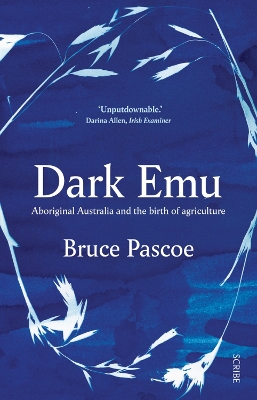Reviewed by HekArtemis on
One thing Pascoe said in the book, is that the lies that have been told have created a view of the Aboriginals that changes our perspective of them as a people, how we see them and feel about them. The idea of them being savages who know nothing at all, it makes us feel superior, but also it make us feel pity for them. Especially when you add in the more modern stereotypes like alcoholism and the like. But when you learn the truth about our history, when you see what the Aboriginal mobs were doing before Europeans came, when you know what they were capable of, your perspective could change from pity and charity - to pride. What a great thing it would be if we all felt TRUE pride in our country, our people, and our history (except for the genocidal parts anyway). I wonder how much it might reconnect us to each other and the land if we began to feel pride for the Aboriginal peoples. We have so much pride and love for Ned bloody Kelly, the criminal idiot who wore a pot on his head - but we don't feel any pride for the people who lived here and thrived for 40,000 plus years. If only we did. I don't think it would cure anything, but it's an important part of the process.
I do take a bit of issue with the way Pascoe presents Aboriginal peoples as seemingly perfect though. It's not that he is necessarily wrong in some of his views of Aboriginals being better in many ways, socially or culturally or sustainability wise. But they were not perfect, and we do know that. He didn't need to include examples of the bad parts of Aboriginal society, those exist aplenty, but the book could've done with a bit less rose tintedness. But in the end it wasn't a huge issue and I can understand why the book was the way it was, so it is not enough for me to drop my rating or anything. I simply wanted to note it so I remember that it's in there. To add, again mostly for my own use - a man may see something as perfect that a feminist such as myself will not see as perfect at all.
I loved this book, a lot. Yes it is infuriating, even in the introduction you face that moment where you wonder what the hell is wrong with people and that continues throughout. But the information provided by the book is amazing too. I think this book, and perhaps several of those Pascoe referenced (eg. The Biggest Estate) are extremely important books and not only do I highly recommend and suggest reading them, I also think they should almost be mandatory reading. In high school perhaps. I own Young Dark Emu as well, and the classroom book, I homeschool my kids.... so. yeah. I also plan to read much more extensively on this topic, and on Aboriginal history, culture, and lore in general.
Read this book. Read. It.
Reading updates
- Started reading
- Finished reading
- 3 October, 2019: Reviewed
